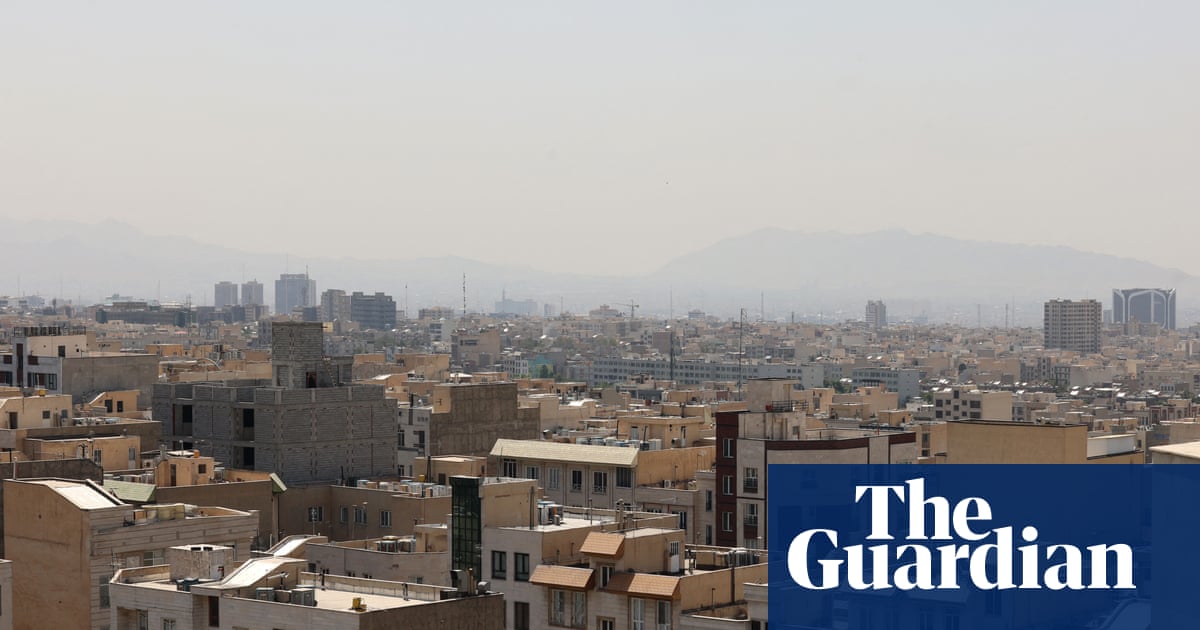Ali’s mother and uncles live less than 50km from Iran’s destroyed nuclear facility in Natanz. He hasn’t heard from his family since the US bombed the site, joining Israel’s effort to destroy the country’s nuclear program.
“Who knows if they’re safe? We don’t really know what is happening there,” says Suren Edgar, vice-president at the Australian Iranian Community Alliance and a colleague of Ali, who didn’t want to use his real name.
“Every time, it’s people who are suffering, not the leaders,” Edgar says.
Australians with family in Iran are anxiously awaiting the Islamic Republic’s next move after it threatened retaliation over the weekend strikes ordered by the US president, Donald Trump. TheUS attacks on three nuclear siteshave prompted fears of a wider regional conflict.
Poor internet connection has cut off contact with loved ones, while many in the diaspora distrust the Iranian government and have no faith in official advice.
Sydney man Siamik Gharheman was waiting to hear whether his friends from Tehran were safe after the US bombing was announced on Sunday morning, Australian time.
Sign up for Guardian Australia’s breaking news email
Some had been seeking to return to Australia when he last heard from them. Others had been struggling to get neighbours out of the capital city as petrol supplies ran short and trains and buses ceased operating.
“Next-door neighbours, elderly people, they don’t even have a car to leave,” says Gharheman, president of the Australian Iranian Community Organisation. “How can they leave to another city, like 400km away?”
Another of Edgar’s friends in Australia has lost contact with his father, who was stranded in Iran after suffering health complications while on a trip to visit family.
“It’s not somehow easy to just leave everything and just get out of the country,” Edgar says.
About 2,600 Australians in Iran are seeking federal government help to depart. About 1,200 people in Israel, which has endured retaliatory missile strikes, were also asking for assistance to leave, the deputy prime minister, Richard Marles, said on Sunday.
“We do have civilian aircraft chartered ready to go in the event that airspace opens up over Iran and Israel,” Marles told Sky News before the US strikes. “We are anxious … about the prospect of this conflict now escalating.”
The Australian government has called for de-escalation and diplomatic dialogue. A government spokesperson said after the US attacks: “Australians in Israel and Iran and the region should continue to monitor public safety information provided by local authorities, including to shelter in place when required.”
The foreign affairs department would communicate directly with registered Australians “about preparations for assisted departures”, the spokesperson said.
Iranians in Australia aren’t optimistic that the conflict will be brought to a swift end, local community leaders say.
Australian advocate Rana Dadpour made contact with friends and family in Iran in the hours before the US attack after being unable to reach them for days.
Sign up toMorning Mail
Our Australian morning briefing breaks down the key stories of the day, telling you what’s happening and why it matters
after newsletter promotion
They’re anxiously awaiting the Iranian regime’s next move, Dadpour says, but fear repercussions whether the Islamic Republic fights back or pursues peace.
“If the regime decides to retaliate, and bring on another crisis … then what will happen to the Iranian people? Will there be more bombs falling on them?” she says.
Iranians fear military destruction but also further oppression amid the war – local news outlets have reported on people being arrested on accusations of spying for Israel.
Dadpour, a former Iranian citizen who left the country after feeling her life was at risk due to her involvement in peaceful protests, says Iranians and their families worry the government could accelerate executions of political prisoners.
“Right now, they are even more scared of the regime, because now they feel like it has been crushed on so many fronts, and the only side that it can turn to and take revenge [is] Iranian people, because they are not armed,” she says.
The one hope, she says, would be the collapse of the government led by Iran’s supreme leader, Ayatollah Ali Hosseini Khamenei, but Trump hasexpressed no interestin sending in ground troops or forcing a regime change.
Melbourne man Kambiz Razmara says his Iranian community in Melbourne is far more afraid of how a vulnerable Iranian government might treat its people than an American invasion.
“Our Iranian communities in Iran [face] just further devastation, further oppression, because [the government is] going to double down, so it’s just a no-win situation for the Iranians,” Razmara says.
Razmara, the vice-president of the Australian Iranian Society of Victoria, says the US attacks have intensified pressure on the Iranian government but further traumatised Iranian communities.
“We are devastated by what we see and the suffering of people … [but] now that they’ve done it, [the US] cannot back off the regime, because it would be terrible for our people,” he says.
“If no change is brought about in Iran, then all the suffering would only serve the purposes of those who brought on the war.”
